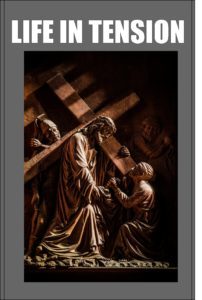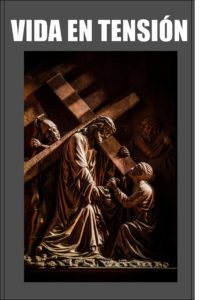Stephen W. Hiemstra's Blog, page 169
February 2, 2020
Prayer for Others
 By Stephen W. Hiemstra
By Stephen W. Hiemstra
Almighty Father, Beloved Son, Holy Spirit,
We praise you for being willfully present in our lives—teach us to be willfully present in the lives of those around us.
We confess our need for holiness—may your example shine through us.
We confess that we are often attracted more to culture and less to you—teach use how to live faithfully in tension with the world around us.
We confess the need to be reconciled with those that pain us and those we pain—teach us how to live sacrificially in your name.
We thank you for the life and sacrifice of your son, Jesus Christ, and for many spiritual gifts showered on us by your Holy Spirit.
Grant us strength for the day, grace for those we meet, and peace.
In Jesus’ precious name, Amen.
Prayer for Other
Also see:
Believer’s Prayer
Other ways to engage online:
Author site: http://www.StephenWHiemstra.net, Publisher site: http://www.T2Pneuma.com.
Newsletter: http://bit.ly/Corner_2020
The post Prayer for Others appeared first on T2Pneuma.net.
Oraciones por los Demás
 Por Stephen W. Hiemstra
Por Stephen W. Hiemstra
Padre todopoderoso, Amado Hijo, Espíritu Santo,
Te alabamos para estar presente deliberadamente en nuestras vidas—enseñanos a estar presente deliberadamente en las vidas de aquellos nos rodean.
Confesamos nuestra necesidad a estar más santo—que su ejemplo brille a través de nosotros.
Confesamos que a menudo nos sentimos más atraídos por la cultura y menos a tí—enseñanos como a vivir fielmente en tensión con el mundo que nos rodea.
Confesamos la necesidad de reconciliarnos con los que nos duelen y quienes les duelamos—enseñanos que vivir sacrificialmente en tu nombre.
Te agradecemos por la vida y sacrificio de tu hijo, Jesucristo, y por los muchos dones espirituales que tu Espíritu Santo ducha sobre nosotros.
Concédenos fortaleza para el día, gracia para aquellos quienes encontramos, y paz.
En el nombre preciosos de Jesús, Amén.
Oraciones por los Demá
Ver también:
Oración del Creyent
Otras formas de participar en línea:
Sitio del autor: http://www.StephenWHiemstra.net,
Sitio del editor: http://www.T2Pneuma.com.
Boletín informativo: http://bit.ly/Corner_2020
The post Oraciones por los Demás appeared first on T2Pneuma.net.
January 31, 2020
Tension with Others
 You have heard that it was said,
You have heard that it was said,
You shall love your neighbor and hate your enemy.
But I say to you, Love your enemies and
pray for those who persecute you,
so that you may be sons of your Father
who is in heaven. (Matt 5:43-45)
By Stephen W. Hiemstra
When we become Christians, tension with others can arise in two ways. First, when we draw closer to God, the gap between the biblical values we are growing into and the cultural values we are leaving behind widens, and people notice. After I started seminary, for example, I noticed that some of my saltier friends stopped using profanity in my presence. Second, because God loves people, when we draw closer to God and become more like Jesus, we cannot help but love people too (John 13:34–35). Although sanctification creates a gap between us and others, God’s love flowing through us works to bridge this gap (Jas 2:15–16).
Abraham and Lot
Consider the story of Abraham and his nephew, Lot. God blessed Abraham and then revealed plans to destroy two sinful cities, Sodom and Gomorrah (Gen 18:17–20). Set apart from the world, Abraham then prayed to God to spare the cities for the sake of the righteous living there (Gen 18:23–32), presumably including his nephew, Lot.
Sodom and Gomorrah
Lot showed no problem living in Sodom or compassion for his neighbors. Quite the contrary, Lot displayed bad judgment in choosing to live in Sodom (Gen 13:10) and only left Sodom on the urging of angels sent to retrieve him (Gen 19:16). Lot’s wife found it even harder to leave Sodom and disobeyed the angels by looking back at the flaming city (Gen 19:26).
Reflecting on the destruction of Sodom and Gomorrah, the church can position itself relative to culture in three ways: working to redeem the culture like Abraham, inattentive to the culture like Lot, or beguiled by the culture like Lot’s wife. Jesus commends Abraham’s approach (Luke 9:52–56), but the grace extended has limits, as Jesus instructs his disciples:
And whatever town or village you enter, find out who is worthy in it and stay there until you depart. As you enter the house, greet it. And if the house is worthy, let your peace come upon it, but if it is not worthy, let your peace return to you. And if anyone will not receive you or listen to your words, shake off the dust from your feet when you leave that house or town. Truly, I say to you, it will be more bearable on the day of judgment for the land of Sodom and Gomorrah than for that town. (Matt 10:11–15)
The disciples are to offer peace (that is, to preach the Gospel) to everyone for the sake of others willing to listen, but those unwilling to listen should have their wishes respected (Matt 10:14).
The Gap
The gap between others and ourselves is the focus of the last three Beatitudes:
Honored are the peacemakers, for they shall be called sons of God. Honored are those who are persecuted for righteousness’ sake, for theirs is the kingdom of heaven. Honored are you when others revile you and persecute you and utter all kinds of evil against you falsely on my account. (Matt 5:9-11)
In these Beatitudes, Jesus neither denies, nor excuses, nor runs away from persecution. Instead, he treats persecution as a ministry opportunity—“Love your enemies and pray for those who persecute you” (Matt 5:44)—and he offers consolation for those suffering it. The implication is that tension with others is the norm, not the exception, for Christian disciples
Tension with Other
Also see:
Preface to a Life in Tension
Other ways to engage online:
Author site: http://www.StephenWHiemstra.net, Publisher site: http://www.T2Pneuma.com.
Newsletter: http://bit.ly/Corner_2020
The post Tension with Others appeared first on T2Pneuma.net.
Tensión con los Demás
 Ustedes han oído que se dijo:
Ustedes han oído que se dijo:
Amaras a tu projimo y odiarás a tu enemigo.
Pero yo les digo: amen a sus enemigos y oren por los que los persiguen,
para que ustedes sean hijos de su padre que está en los cielos;
porque el hace salir su sol sobre malos y buenos, y
llover sobre justos e injustos.
(Matt 5:43-45)
Por Stephen W. Hiemstra
Cuando llegamos a Cristo, tensión con los demás puede surgir de dos maneras. Primero, cuando aceramos a Dios, la brecha entre los valores bíblicos en los que estamos creciendo y los valores culturales que estamos dejando se amplía y la gente nota. Después de comenzar el seminario, por ejemplo, noté que algunos de me compañeros más salados dejaron a usar la profanidad en mi presencia. Segundo, pues Dios ama las personas, cuando nos acercamos a Dios y nos volvemos más como Jesús, no podemos evitar amar a las personas también (John 13:34–35). Aunque la santificación crea un brecha entre nosotros y los demás, el amor de Dios que fluye a través de nosotros trabaja para cerrar esta brecha (Jas 2:15–16).
Abraham y Lot
Considere la historia de Abraham y su sobrino, Lot. Dios le bendijó a Abraham y luego reveló las planes para destruir a dos pecaminosas ciudades, Sodoma y Gomorra (Gen 18:17–20). Separó apartado del mundo, Abraham luego oró a Dios a perdonar las ciudades por el bien de los justos que vivían allí (Gen 18:23–32), presumiblemente a inclusar su sobrino, Lot.
Sodoma y Gomorra
Lot no mostró problema para vivir en Sodoma ni compasión por sus vecinos. Por el contrario, mostró mal juicio a elegir a vivir en Sodoma (Gen 13:10) y solo dejó a Sodoma a la insistancia de los ángeles enviados a recuperarlo (Gen 19:16). La esposa de Lot encuentró más dificultades a abandonar Sodoma y desobedecidó a los ángeles por mirar otra vez a la ciudad en llamas (Gen 19:26).
Reflexionar sobre la destrucción de Sodoma y Gomorra, la iglesia puede posicionarse en relación a cultura en tres maneras: a trabajar para redmir la cultura como Abraham, prestar no atención a la cultura como Lot, o ser captivada por la cultura como la esposa de Lot. Jesús elogia el enfoque de Abraham (Luke 9:52–56), pero la gracia extendida tiene limites, como Jesús instruye sus discípulos:
En cualquier ciudad o aldea donde entren, averigüen quién es digno en ella, y quédense allí hasta que se marchen. Al entrar en la casa, denle su saludo de paz. Y si la casa es digna, que su saludo de paz venga sobre ella; pero si no es digna, que su saludo de paz se vuelva a ustedes. Cualquiera que no los reciba ni oiga sus palabras, al salir de esa casa o de esa ciudad, sacudan el polvo de sus pies. En verdad les digo que en el día del juicio será más tolerable el castigo para la tierra de Sodoma y Gomorra que para esa ciudad. (Matt 10:11-15)
Los disciples deben ofrecer paz (es decir, predicar el evangelio) a todo el mundo por el bien de aquellos que escuchan pero para aquellos que no escuchan sus deseos deben ser respetado (Matt 10:14).
La Brecha
La brecha entre los demás y nosotros mismo es el enfoque de las últimas tres Bienaventuradas:
Bienaventurados los que procuran la paz, pues ellos serán llamados hijos de Dios. Bienaventurados aquéllos que han sido perseguidos por causa de la justicia, pues de ellos es el reino de los cielos. Bienaventurados serán cuando los insulten y persigan, y digan todo género de mal contra ustedes falsamente, por causa de mí. (Matt 5:9-11)
En estas Bienaventuradas, Jesús ni niega, ni excusa, ni escapa de persecución. En cambio, él trata persecución como una oportunidad para ministerio—“Pero Yo les digo: amen a sus enemigos y oren por los que los persiguen” (Matt 5:44)—y ofrece consuelo para quienes que la sufren. La implicación es que tensión con los demás es la norma, no la excepción, para discípulos Cristianos.
Tensión con los Demá
Ver también:
Gospel as Divine Template
Otras formas de participar en línea:
Sitio del autor: http://www.StephenWHiemstra.net,
Sitio del editor: http://www.T2Pneuma.com.
Boletín informativo: http://bit.ly/Corner_2020
The post Tensión con los Demás appeared first on T2Pneuma.net.
January 28, 2020
Cloud: Reclaim Life, Achieve Success

Henry Cloud. 2008. The One-Life Solution: Reclaiming Your Personal Life While Achieving Greater Professional Success. New York: HarperCollins.
Reviewed By Stephen W. Hiemstra
I cannot ignore any book by Henry Cloud. Back in 2003, my pastor preached a sermon based on Cloud’s earlier book called: Boundaries. The sermon interested me enough that I bought and read the book. Applying prescriptions from the book to my life led me to perceive my call into pastoral ministry.
Introduction
The One-Life Solution is a book focused on constructing and developing better boundaries at work (19). Cloud observes that most people get caught up trying to control the things outside their control. Things like other people, circumstances, or outcomes. Meanwhile, they lose control of themselves (22). In this context, Cloud defines a boundary as a property which defines where you end and someone (or something) else begins (25).
Six Key Areas
In a work environment, Cloud sees boundaries bringing order to six key areas: 1. Ownership, 2. Control, 3. Freedom, 4. Responsibility, accountability, and consequences, 5. Limits, and 6. Protection (25-30). Interestingly, these six areas do not lend structure to the discussion that follows. Rather, the book mostly focuses on applying boundaries to establish structure and reduce anxiety.
A Henry Cloud Audit
Cloud suggests that a good place to start is with an audit. The purpose of this audit is to measure where you spend your time, disconnects between time spent and personal values, and what personal issues contribute to the problem (69). This method of analysis is reminiscent of what Miller and Rollnick (2002, 38) referred to as gap analysis–highlighting the discrepancy between present behavior and …broader goals and values.
Assessment
An important point in assessing books with the character of movie sequels is: does the sequel add value to the initial book? Here the answer is yes. Henry Cloud’s The One-Life Solution contributed real value to my understanding of boundaries. For Cloud the key was seeing examples of how to manage difficult office situation with tact and grace. My favorite example recalls an obnoxious CEO who laid into him everyday at his desk at 4 p.m., which ruined his evening as well as his day. Cloud (152) simply made a rule not to talk to him after 4 p.m. I had a supervisor very much like that.
References
Cloud, Henry and John Townsend. 1992. Boundaries: When to Say YES; When to Say NO; To Take Control of Your Life. Grand Rapids: Zondervan.
Miller, William R. and Stephen Rollnick. 2002. Motivational Interviews: Preparing People for Change. New York: Guilford Press.
Cloud: Reclaim Life, Achieve Success
Also see:
Cloud and Townsend Set Limits; Heal Relationships; Gain Control
Books, Films, and Ministry
Other ways to engage online:
Author site: http://www.StephenWHiemstra.net
Publisher site: http://www.T2Pneuma.com
Newsletter: http://bit.ly/Corner_2020
The post Cloud: Reclaim Life, Achieve Success appeared first on T2Pneuma.net.
January 27, 2020
Tension with God: Monday Monologues, Podcast on January 27, 2020
 Stephen W Hiemstra, 2018
Stephen W Hiemstra, 2018By Stephen W. Hiemstra
This morning I will share a prayer and reflect on the Tension With God.
After listening, please click here to take a brief listener survey (10 questions).
To listen, click on this link.
Hear the words; Walk the steps; Experience the joy!
Tension with God: Monday Monologues, Podcast on January 27, 2020
Also see:
Monday Monologue On March 26, 2018
Other ways to engage online:
Author site: http://www.StephenWHiemstra.net,
Publisher site: http://www.T2Pneuma.com.
Newsletter: http://bit.ly/Corner_2020
The post Tension with God: Monday Monologues, Podcast on January 27, 2020 appeared first on T2Pneuma.net.
January 26, 2020
Miel San Marcos en Woodbridge, Virginia, 20200314

Miel San Marcos en Woodbridge, Virginia, 20200314
The post Miel San Marcos en Woodbridge, Virginia, 20200314 appeared first on T2Pneuma.net.
Prayer for Godliness
 By Stephen W. Hiemstra
By Stephen W. Hiemstra
Father God,
Thank you for sending your son, Jesus Christ, into our lives to draw us closer to you.
Save us from our own evil thoughts and feelings.
Unstop our ears; open our eyes; and flood our hearts with the promptings of your Holy Spirit.
Forgive our sin; redeem us from our transgressions; and cleanse us from our iniquities.
Give us a heart for your word and grant us the mind of Christ.
Teach us to lean on your law and to share your grace that we might become true disciples: honored to hunger and thirst for your righteousness; honored to be merciful; honored to pursue godliness.
Through the power of the Holy Spirit and the grace available to us through Jesus Christ.
In Jesus’ precious name, Amen.
Prayer for Godlines
Also see:
Believer’s Prayer
Other ways to engage online:
Author site: http://www.StephenWHiemstra.net,
Publisher site: http://www.T2Pneuma.com.
Newsletter: http://bit.ly/Corner_2020
The post Prayer for Godliness appeared first on T2Pneuma.net.
Oración por la Piedad
 Por Stephen W. Hiemstra
Por Stephen W. Hiemstra
Dios Padre,
Gracias por enviar tu hijo, Jesucristo, en nuestras vidas para acercar nos de tí.
Sálvanos de nuestras propios malos pensamientos y sentimientos.
Destapa nuestros oídos; abre nuestros ojos; e inunda nuestros corazones con las impresiones de tu Espíritu Santo.
Perdona nuestro pecado; redímenos de nuestras transgresiones; y límpianos de nuestras iniquidades.
Danos un corazón para tu palabra y concédenos la mente de Cristo.
Enseñarnos a apoyarnos en tu ley y a compartir tu gracia para que podamos convertimos verdadero discípulos: honrado a tener hambre y sed de tu justicia; honrado de ser misericordioso; honrado de persiguer la piedad.
A través del poder del Espíritu Santo y la gracia disponible a nosotros por causa de Jesucristo.
En el nombre de Jesús, Amén.
Oración por la Piedad
Ver también:
Oración del Creyent
Otras formas de participar en línea:
Sitio del autor: http://www.StephenWHiemstra.net,
Sitio del editor: http://www.T2Pneuma.com.
Boletín informativo: http://bit.ly/Corner_2020
The post Oración por la Piedad appeared first on T2Pneuma.net.
January 24, 2020
Tension with God
 Saul, Saul, why are you persecuting me?
Saul, Saul, why are you persecuting me?
And he said, Who are you, Lord?
And he said, I am Jesus, whom you are persecuting.
(Acts 9:4–5)
By Stephen W. Hiemstra
The idea of tension with God surprises many Christians for at least three reasons. The first reason is that the church’s focus on the humanity of Christ and off of the divinity of Christ cloaks the urgings of the Holy Spirit leaving us ignorant of our distance from God. The second reason is that a focus on conversion and off of sanctification—the process of nurturing our faith—leaves us living secular lifestyles ignorant of God’s will for our lives. A final reason is that our indifference to sin blinds us to our true selves in Christ, to our neighbors, and to God.
It is not an accident that each of these three reasons is highly theological because postmoderns mostly avoid theology—a fourth reason which may be why tension with God may come as a surprise. The postmodern focus on the emotional content of faith and off of the implications of these three theological trends hides our tension with God and quietly robs our faith of its power, like a vacuum cleaner that has been unplugged. Oblivious to the tension, Christians are lulled into believing in a kind of tension-free, ersatz Christianity that provides individualized services, such as childcare, and generally promises to insulate them from the problems of life without substantial obligation. When life’s problems arise, their ersatz Christianity provides no substantive guidance for dealing with them, leading people to become angry with God, and leave the church. It is accordingly helpful to review the reasons that people are unaware of the tension between them and God.
Humanity versus Divinity of Christ
Our secular society questions Christ’s divinity but has no problem with Jesus’ humanity. If Christ is only human, then Jesus is no more than an interesting teacher, the church becomes another interest group, and conversion is as mundane as joining another club. If Christ is not divine, then Jesus’ teaching has no claim on us (1 Cor 15:17) and we can simply ignore any tension with God that Jesus’ teaching might signal.
Conversion versus Sanctification
Over the centuries, Christian leaders have debated the priority of conversion over sanctification. For example, Jonathan Edwards, often praised as the great American theologian, advocated that church members have a personal relationship with Jesus—a fruit more of sanctification than of conversion—only to have his Northampton church dismiss him in 1750 (Noll 2002, 45). If sanctification can be thought of as a series of conversion experiences whose consequence is a closer relationship with God, then tension with God can be seen as a sign of progress in spiritual formation and maturity.
Think about the tension with God in the life of the Apostle Paul. When God told Ananias to go and baptize Saul, he questioned God’s intentions:
But the Lord said to him, Go, for he is a chosen instrument of mine to carry my name before the Gentiles and kings and the children of Israel. For I will show him how much he must suffer for the sake of my name. (Acts 9:15-16)
Paul was called as a Christian and an Apostle to the gentiles and to suffer for the Name. Do you think Paul’s calling created tension in his life, with God, and with others? Paul himself described the life he gave up as a Rabbi and a Jew as rubbish (Phil 3:8) compared to what he gained as a believer. Still, he met every sort of affliction during his ministry (2 Cor 11:23-28) and struggled with an unanswered prayer—a thorn in the flesh—a euphemism perhaps suggesting a grievous sin over which he was not victorious (2 Cor 12:7).
The point in this example is that if tension with God is a challenge even for the spirituality mature, then being unaware of our tension with God signals spiritual immaturity or, worse, spiritual lethargy.
Ignorance of Sin
Spiritual lethargy starts with ignoring sin, which even a hardened atheist should worry about. Sin can be: doing evil (sin), breaking a law (transgression), or failing to do good (iniquity). Sin cuts us off from ourselves, from our neighbors, and from God, which leads to tensions in all three dimensions. Ignoring sin is like driving too fast on an icy road or throwing dirty sand in your gas tank—it can hurt others and messes everything up, including our relationship with God.
God’s forgiveness through Christ sets us right with God and relieves our guilt, but does not in most instances reverse the effects of sin on our person and on others. God can forgive the murderer, for example, but that does not bring the dead person back to life or relieve the perpetrator of punishment under law.
Tension with God is more critical than tension in a human relationship, because our existence depends on God—it’s like a diver at a depth three hundred feet discarding an air tank because life itself is threatened. Sin cuts us off from God, but when we it the channels of communication with God open and we can perceive the promptings of the Holy Spirit. When we obey the Spirit’s promptings we join God in his ongoing creative work in the world and become more sanctified like Jesus, which involves pain and sacrifice. In turn, our sacrifices signal to God, to those around us, and to ourselves that our transformation in Christ is real (2 Sam 24:21-25).
Jesus honors disciples who faithfully pursue godliness:
Honored are those who hunger and thirst for righteousness, for they shall be satisfied. Honored are the merciful, for they shall receive mercy. Honored are the pure in heart, for they shall see God. (Matt 5:6–8)
Notice that these Beatitudes mirror attributes that God uses to describe himself—”merciful and gracious, slow to anger, and abounding in steadfast love and faithfulness” (Exod 34:6)—and offer a key to growing as divine image bearers. These admonitions remind us that God is interested not so much in what we do as in who we become (Fairbairn 2009, 67).
References
Fairbairn, Donald. 2009. Life in the Trinity: An Introduction to Theology with the Help of the Church Fathers. Downers Grove: IVP Academic.
Noll, Mark A. 2002. America’s God: From Jonathan Edwards to Abraham Lincoln. New York: Oxford University Press.
Tension with God
Also see:
Preface to a Life in Tension
Other ways to engage online:
Author site: http://www.StephenWHiemstra.net,
Publisher site: http://www.T2Pneuma.com.
Newsletter: http://bit.ly/Corner_2020
The post Tension with God appeared first on T2Pneuma.net.



